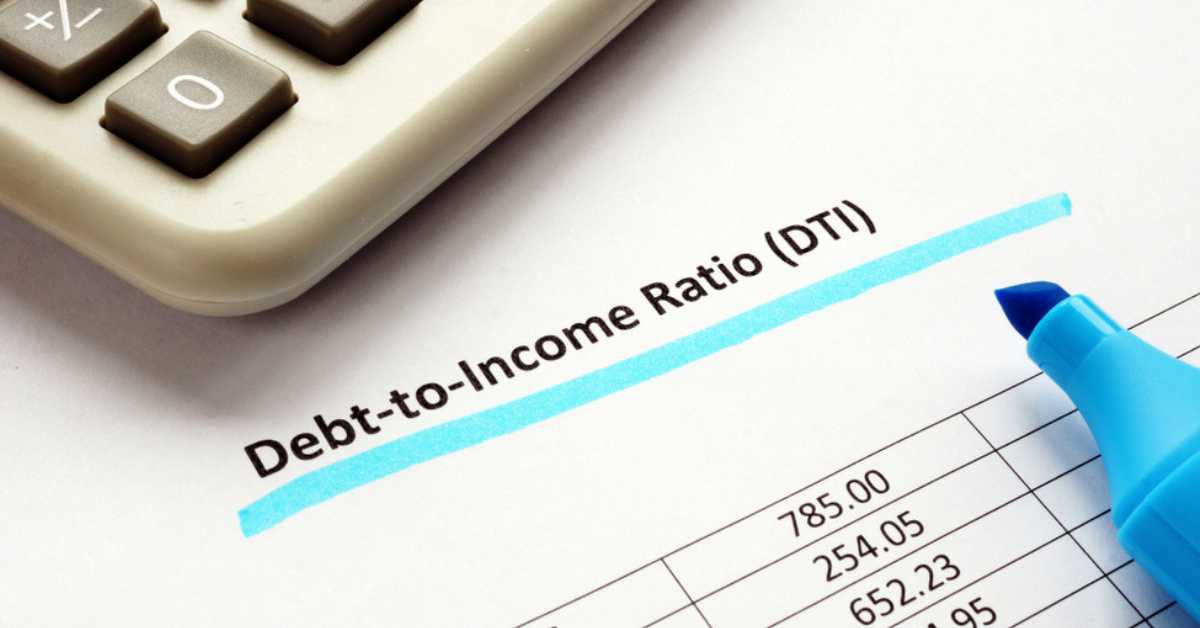Your ability to make your monthly mortgage payments is determined by your debt-to-income ratio (DTI), which includes the GDSR (Gross Debt Servicing Ratio) and TDSR (Total Debt Servicing Ratio).
Based on your overall debt, income, and history of debt repayment, lenders use DTI ratios to assess the risk you offer to them as a borrower. Any mortgage application must include information about your debt to income ratio, which could determine whether you are approved or not.
How to Calculate Your Debt-to-Income Ratio
The gross debt service ratio (GDS) or total debt service ratio can be used to determine your DTI ratio (TDS).
How much of your gross income is necessary to pay for housing-related obligations is reflected in your gross debt service ratio. Mortgage payments, heating bills, local taxes, and 50% of any condo or maintenance fees should all be added up to determine this ratio. Then, divide the total by your gross monthly income.
To get approved with a bank or AAA lender, you should typically aim for a GDS no higher than 39%, however alternative lenders and even some banks can be more accommodating. Since they focus primarily on the asset, private lenders have the most latitude in this area.
Your gross income in relation to your necessary housing payments is another factor in calculating your overall debt service ratio. The TDS ratio, however, also takes into account your other loans, unlike the GDS ratio. Simply tally up all of your monthly housing costs and debt repayments to get your TDS ratio, then divide that number by your gross monthly income.
When trying to convince a bank to approve you, you should typically aim for a TDS of no more than 44%. However, just like the GDSR ratio, many lenders have exceptions, so this may change depending on your lender.
The Significance of Your DTI Ratio
Debt-to-income ratios are a risk indicator used by lenders. When you have a high DTI ratio, it tells lenders that you are already taking on a lot of debt and devoting a lot of your income to paying it off. A borrower with a high DTI ratio might be thought of as being unreliable with money and living over their means.
Lenders can tell you are a responsible borrower if your debt to income ratio is modest. Additionally, it shows that you have a sizable safety net for your loan repayments.
How Your Debt-to-Income Ratio Can Affect Your Mortgage Approval Chances
Lenders frequently look at both your GDS and TDS ratios when considering your eligibility for a mortgage. Your lender will assess these debt-to-income ratios to decide whether you fit within their personal risk limit. A borrower with a high DTI ratio can be thought to be unprepared to handle debt repayment. Although a high debt-to-income ratio does not automatically disqualify your application, many lenders may view it negatively.
Fortunately, your eligibility is not only determined by your DTI ratio. Lenders will look at a variety of things, including your debt percentages. In addition to your salary, your borrower profile may take into account the regularity of your pay, your line of employment, and the structure of your bonuses and overtime. Your credit history and score will also be taken into consideration.
You must keep your DTI below your lender’s cutoff if you want to be approved for a mortgage. Some AAA lenders will be able to make exceptions on GDS ratios reaching as high as 42% and TDS ratios as high as 46%, while some lenders are more accommodating than others.
With certain B lenders offering up to 70/70 mortgage arrangements, for example. While a GDS ratio of 42% may be acceptable, it is unfavorable and may result in a slightly higher rate, it is crucial to note. You should strive to maintain your GDS and TDS ratios well below the lender’s threshold in order to be eligible for competitive mortgage rates.
Improving Your Debt-to-Income Ratio
You might want to start by lowering your debt-to-income ratio if you want to improve your chances of getting a mortgage. You can raise your DTI ratios in the following ways to make yourself a more desirable borrower:
Reducing Your Existing Debt
Paying off your current bills before submitting your mortgage application is one of the best strategies to increase your chances of getting approved. While paying off debts can be challenging, you may be able to prevent any compound interest payments by maintaining a regular budget and exercising cautious planning.
Depending on your financial status, you might want to think about delaying the purchase of your home for a while so that you can first pay off your current bills. Prior to applying for a mortgage, paying off your debts can not only improve your chances of being accepted but also put you in a better stable financial situation.
Making a list of all your present debt responsibilities and payments is a good place to start if you want to start paying off your debts. Sorting your loans according to interest rates will help you maximize your long-term savings. Pay off your highest-interest debts first. Consolidating all of your present mortgage into a single low-interest mortgage is another strategy to lower your monthly interest payments.
Using Rental Income to Improve Your DTI Ratios
When determining your DTI ratios, the Canadian Mortgage and Housing Corporation (CMHC) may, in some circumstances, permit you to include rental income as part of your gross monthly income. When determining your DTI ratios, you can often include up to 50% of the income produced by a residential rental property.
When determining your monthly housing expenditures, you can also take the rental property’s home taxes and utilities prices into account. More of the rental income may be considered toward your ratios with Langley Mortgage Broker.
Imagine that you are currently renting out a second apartment that is connected to your home while you live there. In that situation, you might be able to calculate your gross income by including 100% of your rental revenue.








